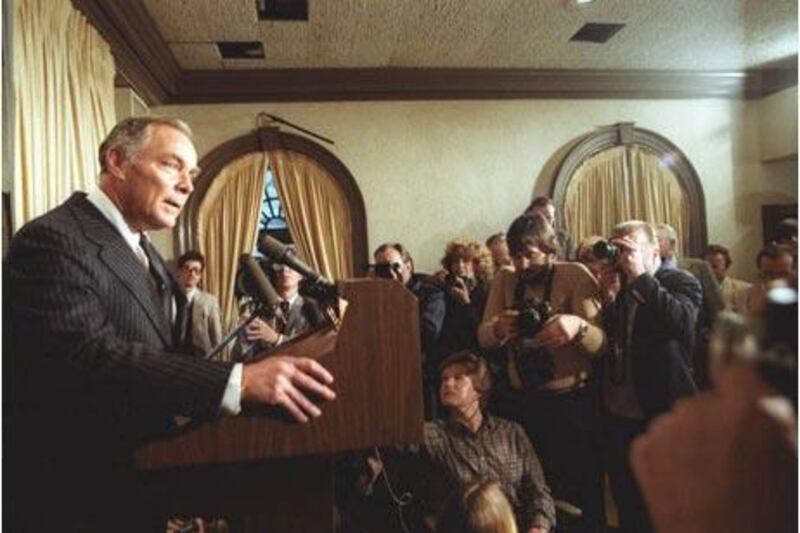Alexander Haig served two Republican presidents as chief of staff, another as secretary of state and was supreme commander in Europe, yet he will be best remembered for his audacious bid to take command after the attempted assassination of Ronald Reagan. On March 30, 1981, hours after President Reagan was shot, Haig announced from the White House press room: "As for now, I'm in control here, in the White House, pending the return of the vice president."
The last, qualifying phrase was generally lost when Haig's message was relayed, but the fact was there were two other officers of state with a superior claim. His ill-concealed ambition put paid to any chance of elected office and his presidential candidacy did not survive the 1988 New Hampshire primary. The middle son of a prosperous Philadelphia lawyer, he was brought up Catholic and attended West Point Academy from where he graduated in 1947, an unpromising 214th out of 310. As Lt Haig, he was posted to occupied Japan. He married the daughter of Gen Alonzo Fox, deputy chief to Gen Douglas MacArthur, and became Fox's aide-de-camp.
He saw action in Korea and, after four years in the Pentagon, was given command of a battalion in Vietnam in 1966. He was awarded the Distinguished Service Cross for his actions in the Battle of Ap Gu, the Distinguished Flying Cross and the Purple Heart, and left Vietnam a colonel. In 1969, he was appointed military adviser to the National Security Council by Henry Kissinger who described him as strong, decisive and indefatigable. Richard Nixon saw him as "the toughest, most ambitious SOB I ever saw" and promptly promoted him to deputy national security adviser. He was a prime negotiator in talks with Vietnam that led to a ceasefire in January 1973.
As the Nixon administration imploded under the Watergate scandal, Haig was recalled to the White House as chief of staff. With the president distracted and disarmed, Haig and Kissinger took virtual command. Kissinger observed: "Al Haig is keeping the country together, and I am keeping the world together." Haig played a key role in the transition of Gerald Ford and was considered instrumental in President Ford's decision to pardon Nixon.
In 1974, he became commander-in-chief of US forces in Europe and took charge of Nato's forces, resigning in 1979. After a stint as president of the defence contractor United Technologies, Reagan appointed him secretary of state. The affable Reagan barely knew Haig, who clashed with the defence secretary Casper Wienberger, and fell out with vice president George H Bush. He resigned in July 1982 after failing to live down his "I'm in command here" outburst.
His manner of speech, making verbs of nouns - "If I may caveat that" - and tortured phraseology - "That's not a lie. It's a terminological inexactitude" - entered the lexicon as Haigspeak. Alexander Haig was born on December 2, 1924, and died on February 20. He is survived by his wife, a daughter and two sons. * The National






